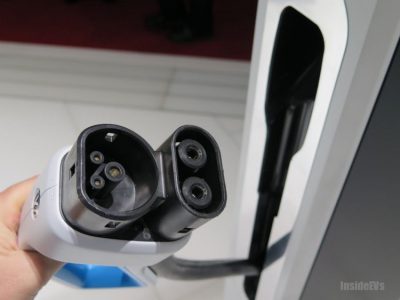Shell, an integrated energy and petrochemicals company, has now become one of the core members of CharIN e. V. (aka the Charging Interface Initiative e. V.)…which we guess is a good thing?
The company of course is still mostly engaged in refueling conventional cars with petrol, but it would now also like to be best prepared for the future of transportation; and as such, participate in an industry collaboration in the development of a common standards for electric charging technology.

“Shell is pleased to join CharIN as a Core member, and looks forward to being an active participant looking at charging infrastructure, communication and grid integration.”
This year, Shell intends to install charging stations primarily in the UK, followed by expansion into other countries.
At the same time, Shell also seems to be interested in smart home charging:
“Shell is already actively developing systems designed to serve the growing number of customers driving electric vehicles. From 2017, Shell will launch electric vehicle fast charging at a selection of Shell forecourts in the UK, with other countries to follow, to serve the ‘on the go’ charging needs of customers.
Shell is also in the early stage of launching an offer to customer fleets in Europe and the US, delivering more efficient charging for their electric vehicles via the use of Shell’s own smart charging technology. This technology can help to both reduce charging costs for customers and integrate this new demand effectively into the power grid. Smart charging technology also optimises the integration of renewable energy sources, by shifting the charge of electric vehicles to a period of the day when supply of electricity from those sources is high. Shell is also developing a R&D technology programme on electric vehicle charging and infrastructure.”
Matthew Tipper, Vice President Shell New Fuels said:
“A range of different fuels and vehicle technologies will be needed to meet growing demand for transport in a low carbon energy future. Electric vehicles are one of these solutions. We are pleased to join CharIN and take part in the efforts to develop common standards for the technology that will support the increasing number of electric vehicles on the roads wherever and however they charge”.
Source: Inside EVs
